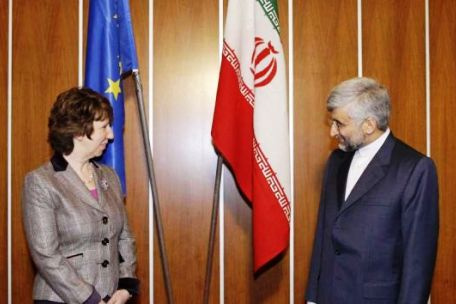From Boycott to Negotiations: Iran in pursuit of backstage diplomacy

IRD: In recent days, while Europeans have reached an initial agreement over the boycott of Iranian oil and simultaneous to the rise of international pressures against Iran, the issue of negotiations between Iran and 5+1 has turned into a hot topic. Iranian Diplomacy has reviewed the situation with Ali Bigdeli, international affairs analyst.
IRD: Recently, there have been rumors about the start of negotiations between Iran and the P5+1 group [fiver permanent UN Security Council members and Germany]. How do you evaluate the current atmosphere?
AB: Tensions have resurged following threats of blocking the Strait of Hormuz by Iranian authorities during the last few days, and along with that, the naval exercise in the Persian Gulf. Despite the existing propaganda, Iran has announced its readiness for continuation of negotiations in order to reduce the international pressures. But EU Foreign Minister Catherine Ashton, in return, has stated that she has not yet talked to her partners, so no answers for Iran yet. However, Ahmet Davutoglu’s visit to Tehran had to do with the nuclear negotiations. There is a clear link between these two stories and Iran’s measure has reduced international tensions.
IRD: Iran’s proposal shows its inclination to negotiate. The reaction of the US and other P5+1 members necessitates Iran entering the talks without any preconditions. Do you think that Iran will show more flexibility during the negotiations?
AB: Unconditional talks have been discussed before. Ashton has announced that if they were supposed to be on the same topics discussed before, there would be no need to begin them. Iran may be following a backstage diplomacy. Delegations are shuttling back and forth to convince Iran retreat from its tough stance. Nevertheless, considering that even the Iranian parliament has discussed the impact of stringent economic sanctions behind the closed doors and foreign threats may develop a precarious situation, Iran should rethink how it can bear all the burden imposed by these sanctions and whether they are worth enduring; or if it is worth confronting the world and entering a war. Since the result of the parliament’s discussions have not been publicized yet. Talks between Ashton and Jalili have been also kept secret not to jeopardize the likely future parley; so it is hard to predict Tehran’s next move.
IRD: We also have the issue of boycotts of the Iranian Central Bank and oil exports. Do you see any chances for negotiations in the prospect if Iran takes a step backwards?
AB: The government is trying to prevent the Central Bank and oil export’s boycott by the EU, because that is the finale of the sanctions. I think the National Security Council is trying to stop EU. If that doesn’t happen, the negotiations with Ashton will not work. That is why the nuclear exchange between Jalili and Ashton have been kept secret.
IRD: Iran announced its new nuclear achievement, mastering the production of fuel rods for Tehran’s Research Reactor. Could this new advance give Tehran the upper hand in nuclear talks?

